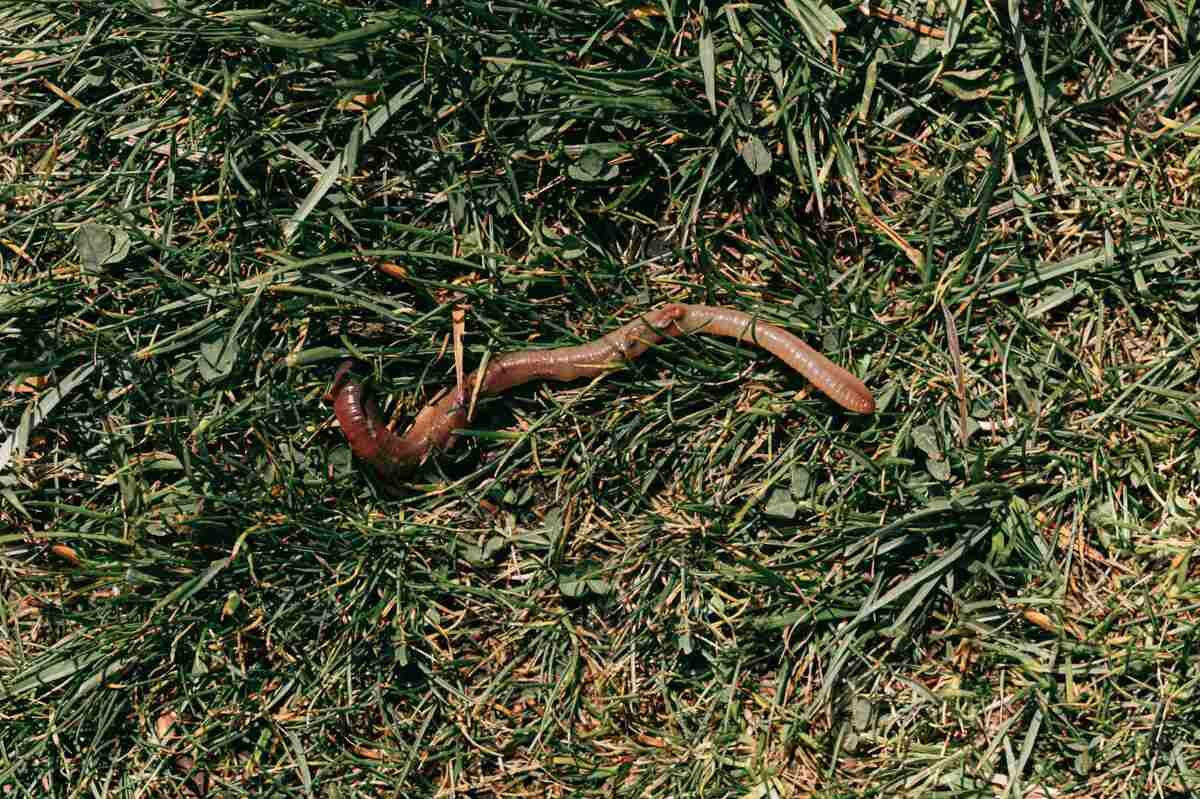
When it comes to earthworms in your lawn, the more the merrier. Worms are lawn allies, enriching soil and promoting plant growth. They till soil naturally and infuse it with nutrients that feed plant roots.
The key, then, is knowing how to attract earthworms to your lawn. You can actually buy worms, but we strongly advise going the natural route. It’s simple: Keep your soil moist and aerated, add organic matter like compost or mulch, and go easy on pesticides.
5 Strategies for Attracting Earthworms
To have a lawn teeming with earthworms, you need to create an environment that suits them. This necessitates striking a balance between earthworms’ unique anatomy and the soil conditions they find habitable. Typically, wherever there’s healthy soil, you will find earthworms thriving.
“Research has shown that earthworms can facilitate the production of plant-growth-promoting hormones and help plants protect themselves against common soil (diseases),” Christopher Outcalt writes for Colorado State University’s College of Agricultural Sciences. “Some estimates have indicated earthworms can increase overall plant productivity by about 25 percent.”
A word of caution: If you buy earthworms for your lawn, they might not live long or could harm the environment. Hence, it’s better to attract local worms naturally to your yard.
Here’s how to attract worms to your lawn:
1. Maintain Soil Moisture
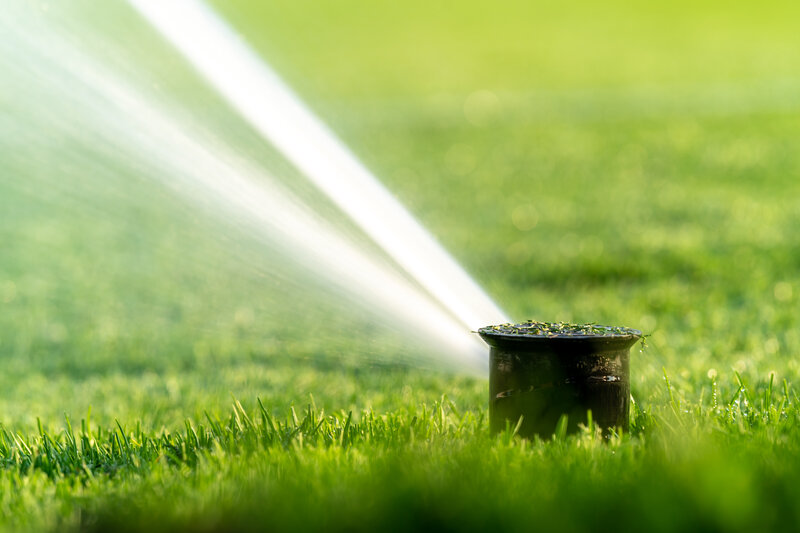
Earthworms require damp – not soggy – soils to breathe because they absorb oxygen most easily through their skin if it’s moist. If the soil gets too dry, they burrow too deep into the ground in search of moisture. If it’s overly soggy, they might abandon the area.
Therefore, proper watering of your lawn is good not only for the grass’s growth but also for attracting earthworms.
STRATEGY: Water deeply and less frequently, allowing the soil to dry slightly between watering sessions. (Here is our guide on “How Often Should I Water My Lawn?”)
2. Increase Organic Matter
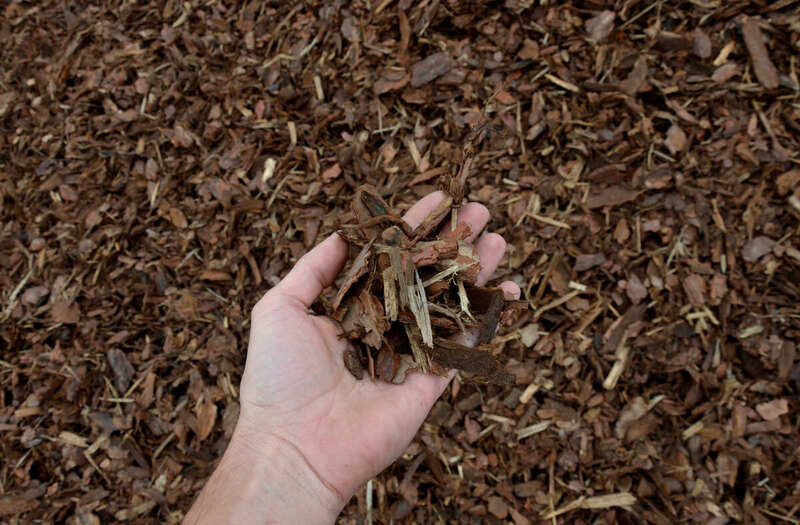
By adding organic matter to your lawn, you provide earthworms with an irresistible food source while simultaneously nurturing your soil’s health.
After munching on this rich material, worms eliminate waste (castings) filled with grass-friendly nutrients like nitrogen, phosphorus, and potassium. This creates a perfect environment for beneficial microbes that help the decomposition process further, ensuring nutrients are readily available for plants to absorb.
In short, more organic matter equals happier worms and healthier lawns.
STRATEGY:
- Leave grass clippings on the lawn after mowing. Be sure that the clippings are small enough to decompose quickly.
- Add a thin layer of compost or well-rotted manure as a top dressing.
- Mulch with organic matter like leaf mold, straw, or wood chips in the fall and allow them to decompose on the lawn.
3. Avoid Pesticides and Synthetic Chemicals
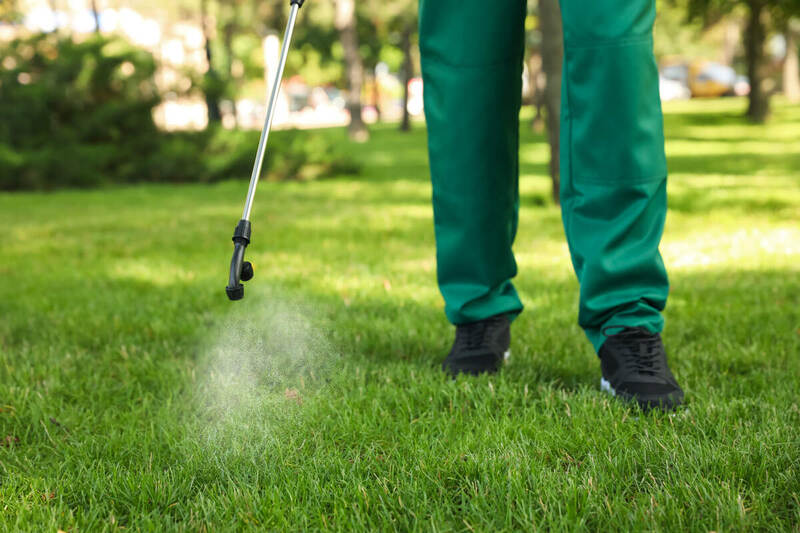
Commercial chemicals and pesticides can harm earthworms’ natural food supplies, robbing your soil of their favorite treats.
Certain chemicals also have a detrimental impact on these little friends. Synthetic fertilizers disrupt the soil microbes, causing an imbalance in the ecosystem in which earthworms thrive.
STRATEGY:
- Use natural weed killers. (Here’s our guide on “Organic Herbicides”)
- Apply beneficial nematodes instead of pesticides to deal with pest issues. (Take a quick peek at our article titled “What Is Organic Pest Control?”)
- Use slow-release, natural fertilizers like milorganite, compost, or fish emulsion. (Check out our detailed guide on “What is Organic Fertilizer?”)
4. Reduce Soil Compaction
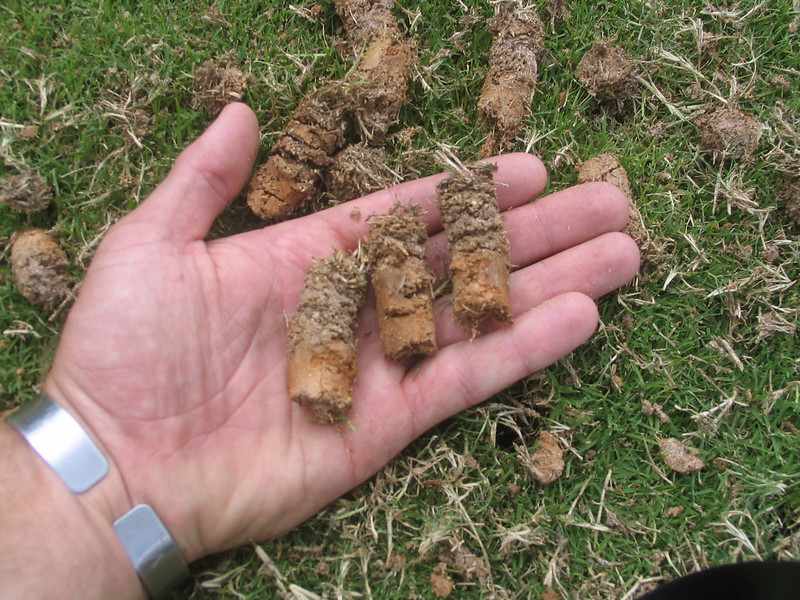
Compacted soil discourages earthworms from setting up residence on your lawn. They need space to move, as they don’t like to move through hard earth particles. Compaction also cuts off air and water circulation, which are vital for worms’ survival.
STRATEGY:
- Aerate your lawn annually to alleviate compaction. (Here’s our “Quick Guide to Core Aeration”)
- Avoid walking on the lawn when the soil is wet, as this can compact soil.
- Use a mulch mower to chop up grass clippings and leaves, which keeps a dense thatch layer from forming.
5. Maintain a Neutral pH

Earthworms prefer soils with pH levels between slightly acidic and neutral (approximately 6.0 to 7.0). Most turfgrass species also favor this pH range, making it a win-win for both your lawn and these little friends.
STRATEGY:
- Test your soil pH level every year and take corrective measures. (Check out our guide on “Why, When, and How to Test the Soil pH of Your Lawn”)
- Apply lime to raise the soil pH if it is too acidic. Conversely, apply sulfur to lower the soil pH if it is too alkaline.
FAQ About Attracting Earthworms to Your Lawn
Worms are highly sensitive to certain substances, including salt, so don’t apply too much fertilizer or other treatments that could increase your soil’s salt concentration significantly.
Too many worms in your lawn can also be a problem. They attract other pests like voles that feed on them and dig up the soil, they eat newly planted seeds, preventing germination, and their burrowing can damage delicate plant roots.
These problems are rare, though. A balanced population of earthworms in your yard usually translates to a sustainable and healthy ecosystem. Check out our guides on how earthworms benefit your lawn and manage their castings:
• “How Earthworms Help Your Lawn, Grass and Soil”
• “How to Manage Earthworm Castings on Your Lawn (4 Tips)”
Yes, worms not only love the taste but also benefit from the nitrogen-rich content in coffee grounds, which is good for grass growth. Just don’t use too much; it could make the soil too acidic.
Encourage Happy Worms With Lawn Pro Help
For a worm-friendly lawn, you need to keep the soil moist, rich in organic, well aerated, and ensure a neutral pH balance. Not to mention cutting down on pesticides.
Moreover, regular mowing doubles the benefits. Mowed clippings become a lovely meal for earthworms while keeping their surroundings damp enough for them to survive happily. Hence, your lawnmower goes beyond trimming – it is an important tool that drives these little friends to hang around.
Need some assistance? A local lawn care expert can take charge of regular mowing and encourage a healthy lawn where beneficial earthworms flourish.
Sources:
- “Earthworms Play an Important Role in Global Food Production” by Christopher Outcalt, Colorado State University.
- “Earthworms in Lawns” by R. Chris Williamson, Turf and Ornamental specialist, University of Wisconsin-Madison
- “Should I Put Earthworms in My Garden?” University of New Hampshire
“Agricultural Management Effects on Earthworm Populations” U.S. Department of Agriculture
Main Image Credit: Pexels